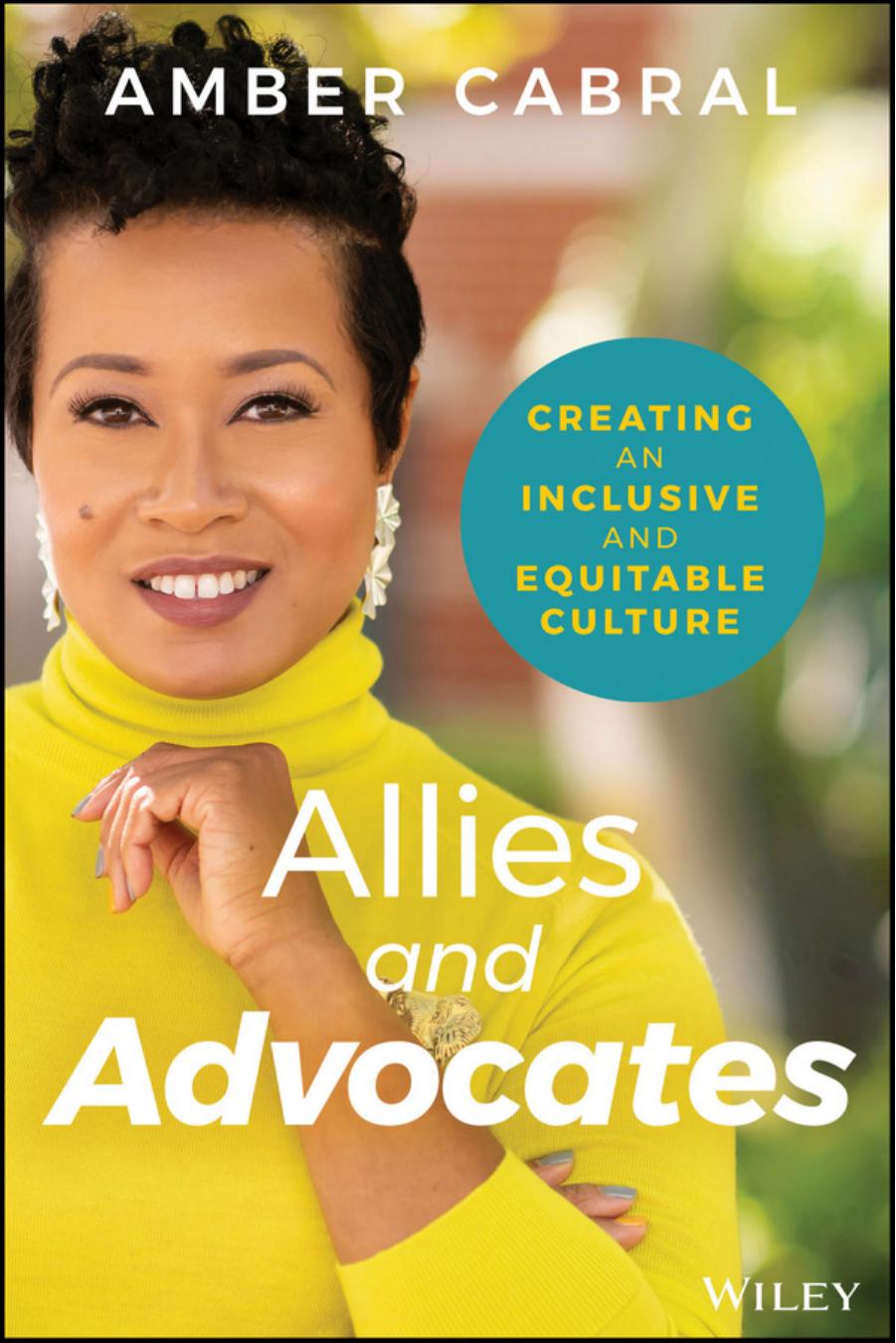Allies and Advocates by Amber Cabral

Author:Amber Cabral [Cabral, Amber]
Language: eng
Format: epub, pdf
ISBN: 9781119772941
Publisher: Wiley
Published: 2020-11-17T00:00:00+00:00
Halo and Horns Effects
The halo effect is when a characteristic we like about a person influences our opinions on everything else about that person. The horns effect is when we perceive one negative thing about a person and the âhornsâ of that one thing influence our opinion about that person. These biases are two sides of the same coin. When we like someone, they can do no wrong. When we don't like someone, they can so no right. Halo and horns effects show up often with celebrities. If you love LeBron James and think he's the greatest of all time, especially considering how well he connects with others and shows love to his family, it might be hard for you to admit when he's having a tough game day. On the other side, though, say you think LeBron James is incredibly arrogant, self-servingâand who refers to themselves as âKing,â anyway?âwell, you can spot all the missteps LeBron makes with ease. Pick your favorite celeb or the celeb you love to hate and try this; sound familiar?
Halo and horns effects play out in real life. We find reasons to not give promotions and opportunities to people with those horns and will create opportunities for people who have halos. These effects can be a real source of favoritism or discrimination in workplaces or shared spaces.
Bias happens to everyone. You can't escape it. I always tell my clients we are all biasing all over everywhere, all the time. There is no removing all bias because it is wired into how our brains work. So, are you biased? Yes! We all are. The word âbiasâ has a negative connotation, but, in reality, it does plenty of good in our lives. However, because acting on a bias can also be inappropriate, discriminatory, or offensive, we need to check biased behaviors and be open when someone tells us we are being biased. Rather than taking offense, a more appropriate response is to ask âCan you help me see what I am missing?â so you can become aware of potential biased behavior that could be doing harm.
Before we transition to the next chapter, I want you to do a quick exercise. Pull out a sheet of paper and make a list of ten people you trust who are not immediate family. (Immediate family is anyone you have ever lived in a home with.) Not life-or-death trust, but reasonable trust. You'd invite them to your home for a meal or you know they'd stop if they saw you on the side of the road. I know we have been sheltering in place for a while so it might be a little hard to think about. Maybe pull out your phone. But make sure you have ten people.
Got your list?
Great. Set it aside or tuck it in this book. We will to come back to it later.
Download
This site does not store any files on its server. We only index and link to content provided by other sites. Please contact the content providers to delete copyright contents if any and email us, we'll remove relevant links or contents immediately.
Time Management Made Easy: How to Cultivate New Habits, Improve Productivity and Get Things Done by Joshua Strachan(2419)
The 7 Habits of Highly Effective People by Stephen R. Covey & Sean Covey(2268)
The Concise Laws of Human Nature by Robert Greene(1916)
Doesn't Hurt to Ask by Trey Gowdy(1640)
Primal Leadership by Daniel Goleman(1285)
Hook Point: How to Stand Out in a 3-Second World by Brendan Kane(1248)
Don't Sweat the Small Stuff...and It's All Small Stuff by Richard Carlson(1121)
HBR's 10 Must Reads 2021 by unknow(1098)
The Power of 100! by Shaun King(1098)
Amazon Unbound by Brad Stone(1046)
100 Things Successful People Do by Nigel Cumberland(1031)
Master of One by Jordan Raynor(1008)
HBR's 10 Must Reads 2021 by Harvard Business Review(1007)
The Job Closer by Steve Dalton(994)
Declutter Your Mind: A step by step guide to learn to control your thoughts, stop worrying, relieve anxiety and eliminate panic attacks and negative thinking by Mia Chandler(970)
Lives of the Stoics by Ryan Holiday & Stephen Hanselman(969)
Conflicted by Ian Leslie(873)
The Book of Hope by Jane Goodall(872)
Coders at Work: Reflections on the craft of programming by Peter Seibel(848)
